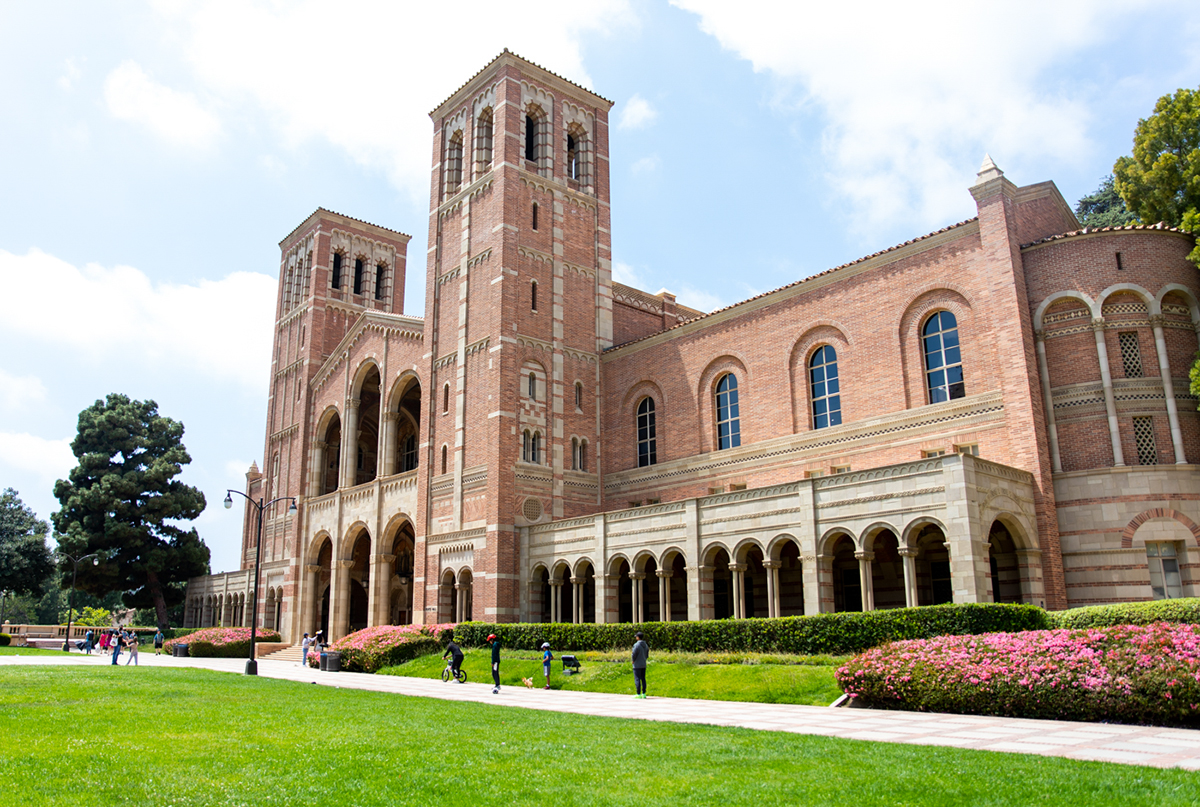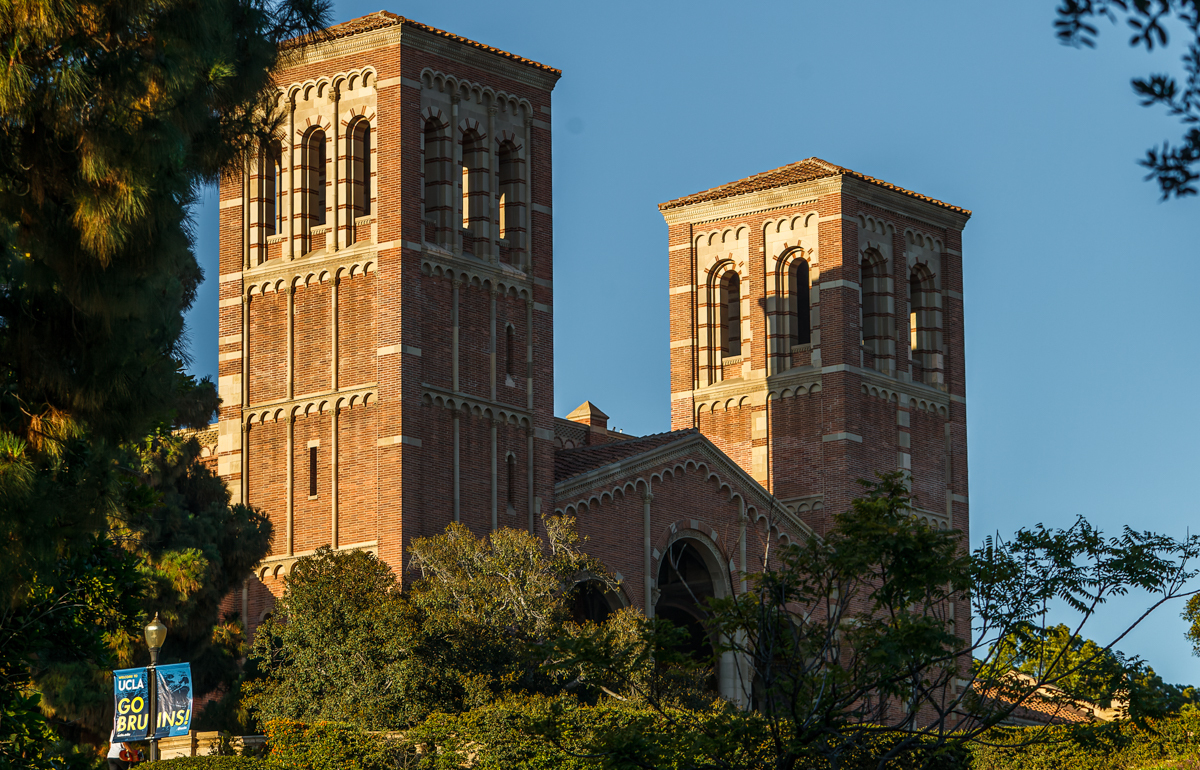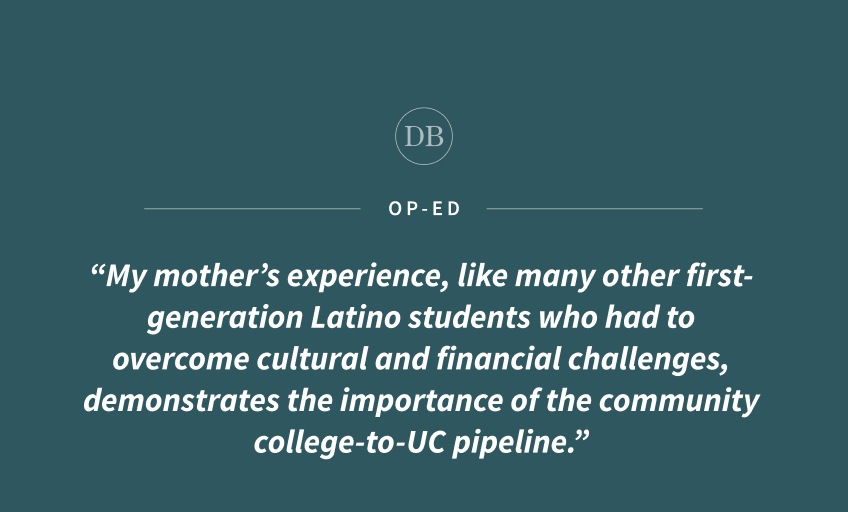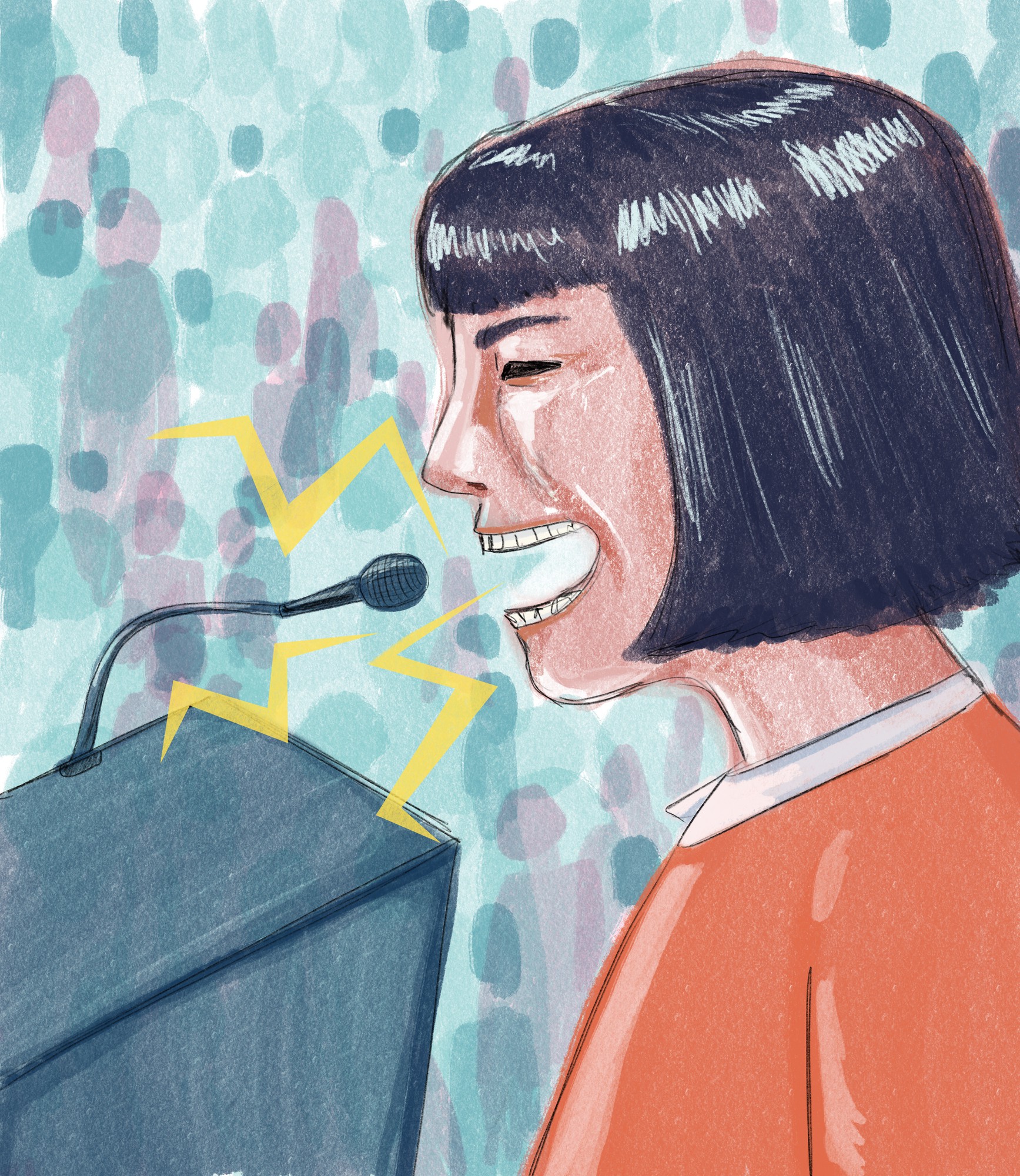Opinion: University ranking systems maintain cycle of privilege in higher education

Royce Hall is pictured. The ranking system that dubbed UCLA the No. 1 public school in the nation perhaps uses flawed metrics. (Daily Bruin file photo)
By Allison Bushong
March 3, 2023 4:50 p.m.
This post was updated Mar. 5 at 8:25 p.m.
If you stroll down Bruin Walk, around the Hill’s residential buildings or anywhere on UCLA’s campus with a lamppost, you will inevitably be met with a bright blue poster that reads in bolded letters: “UCLA: #1 Public University.”
For the sixth year in a row, UCLA has been named the No. 1 public university by U.S. News & World Report, a title not taken lightly by students, staff, faculty or the Office of Undergraduate Admission. The pride that comes with being No. 1 has undeniably united the UCLA community and elicited a valuable school spirit for current and aspiring students.
“Having our campuses consistently recognized among various ranking organizations year after year is a testament to UC’s commitment to its mission of providing the highest quality of undergraduate education, graduate and professional education, research, and public service,” said Erika Cervantes, a spokesperson for the University of California Office of the President, in an emailed statement.
However, the spotlight on rankings within UCLA and the UC system raises the question of what criteria are used to determine them. Understanding this No. 1 title in context not only reveals the flawed and inequitable ranking system in place but also shows that placing too much emphasis on college rankings can exacerbate elitist mindsets and perpetuate a cycle of privilege within higher education.
According to U.S. News & World Report, the organization that conducts the college rankings and determines criteria, the peer assessment score makes up a whopping 20% of a school’s overall ranking. This consists of obtaining an “expert opinion,” in which academics of various institutions are asked to rank other universities on a scale of one to five.
Beyond the blatant subjectivity of the system, deans and provosts seem largely unqualified to assign scores to schools they are unaffiliated with and only indirectly know anything about, except general impressions of name brands and existing reputations.
In 2021, author Malcolm Gladwell collaborated with Lauren Lavelle, a former student at Reed College, to launch an investigation into the peer assessment score. Lavelle developed a statistical model revealing that the peer assessment score could be linearly predicted, with 91% accuracy, by five factors: the school’s endowment, the school’s tuition, the percentage of the student body that is white, the percentage of the student body receiving Pell Grants and the peer assessment score from over 10 years prior.
“The richer you are, the more you charge, the whiter you are, and the less students are receiving Pell Grants, the better your score is going to be, and that is probably the definition of elitist,” Lavelle said.
Using this metric incentivizes the increased admission of white students into top universities, further marginalizing the BIPOC community, added Lavelle.
The cyclical pattern of wealth, not to mention the perpetuation of systemic racism forged by the prominent ranking systems, makes it exceedingly difficult for smaller, more diverse schools – particularly historically Black colleges and universities – to move up in the rankings compared to large schools with huge endowments like UCLA.
In 2022, UCLA reached an endowment of nearly $5 billion, contributing heavily to its overall ranking. According to Lavelle’s model, a school’s endowment alone predicts 55% of its peer assessment score. The huge disparities in financial standing ultimately unfairly contribute to the lower rankings that more diverse schools receive.
“You can go to a top institution and still have a horrible experience if you don’t have the support that you need,” Lavelle said. “It doesn’t matter if there’s billions of dollars being spent on research if there isn’t adequate student services.”
In 2014, Time Magazine published an article detailing the Obama administration’s plan to assess universities on factors that the White House believed to be more balanced criteria, including graduation rate, tuition or affordability, and number of students receiving Pell Grants. While this metric also neglects many aspects, this criteria challenges the U.S. News’ system – ranking UCLA at No. 31 out of 2,500 schools, with the No. 1 spot going to UC Riverside.
However, UCLA has worked toward confronting the flaws of the college ranking system.
“While rankings are a part of the college search process for some students and their families, our goal in Undergraduate Admission is to encourage students to explore UCLA more deeply to understand the experience we offer,” said Gary Clark, UCLA’s interim vice provost for enrollment management and executive director of undergraduate admissions, in an emailed statement.
In September, Chancellor Gene Block released a statement in response to U.S. News & World Report’s latest rankings, addressing both his pride in UCLA’s success and his apprehension with the attempt to compare universities through such means of classification.
Despite these acknowledgments of systemic inequity, college rankings are indisputably pervasive in the college decision-making process. Rankings are almost impossible to ignore as a prospective student. Therefore, suggesting the complete eradication of rankings would likely be unproductive.
While any type of ranking will likely never capture the true quality of a school, reforming these metrics would reduce the ineffectiveness and immobility of the closed-loop system produced by U.S. News & World Report, according to Lavelle.
Because of the inevitable pervasiveness of rankings, more explicit attention to the systemic inequities in the ranking system would help address the elitist attitudes they promote.
UCLA as an institution benefits greatly from its continuous acclaim as the No. 1 public university in its international reputation. But as a leader in the rankings, it is clear that the UCLA community can play a critical role in squashing out the emphasis on wealth and marginalization that have become byproducts of the college ranking system.





